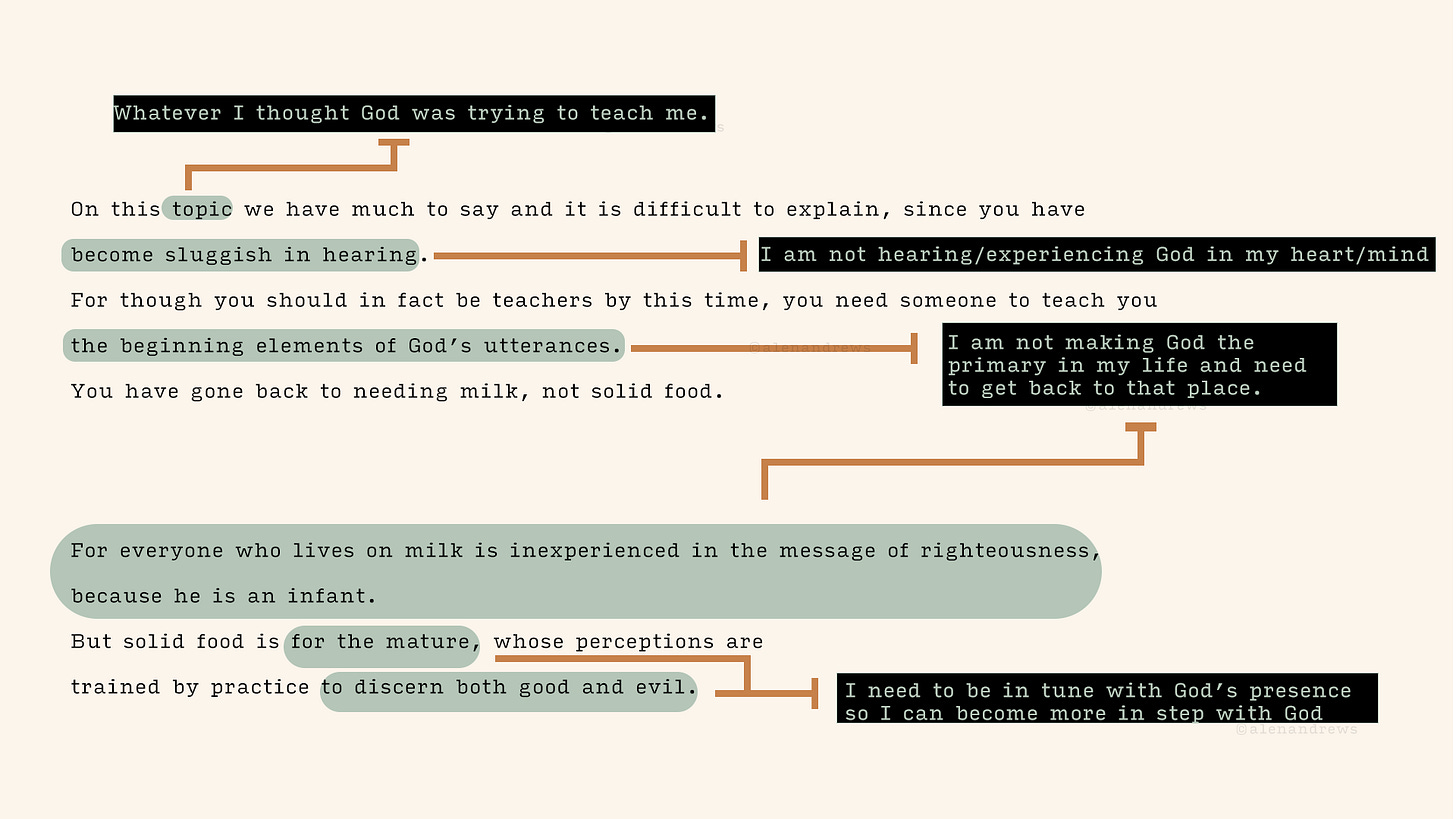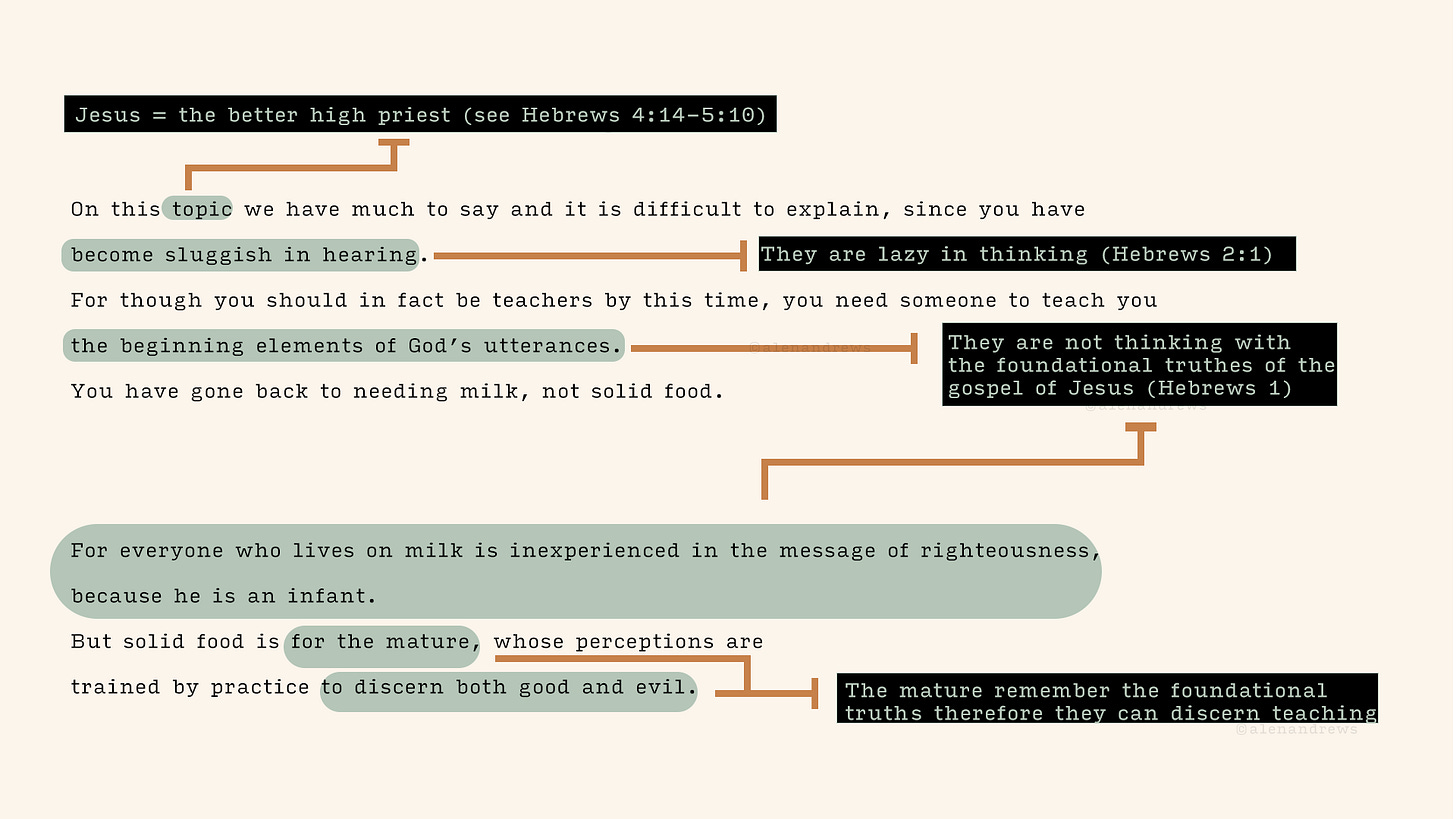“How do I mature as a Christian?”
I kept trying to come up with a clear answer to the question: How can we gauge “spiritual maturity?”
It was is a hot term when discussing any issue from understanding preaching to choosing a spouse. However, over the past three years—I’ve stopped using “spiritual maturity.”
I was introduced to this term at a young age. It was associated with personal devotion and having a “relationship” with God. I was always looking to become more “spiritually mature” and always “grow.” Why? Because life looked better on the other side—not in the process.

So I would attend conferences, read the bible almost every day, and find ways to share the gospel of Jesus. I had been told that this is how I can be more mature in my faith. I needed to grow out of my current state and childish faith. I needed to eat “real food” and not just drink “milk” like an infant.
But what does that really mean?
No milk!
If you’ve read the book of Hebrews (or heard a sermon on “spiritual maturity”), you may think of Hebrews 5:11-14. Whenever I would read this passage, I was trying to make it make sense in my life immediately. So I would interpret this passage like so:
Whenever I would read these sections, my mind would automatically switch gears and read the passages outside of its original context. It was a skill I was trained in by (well-meaning) mentors, pastors, and other spiritual leaders in my life. We would read this passage in our “quiet time” to “hear” God speak individually speak to us. At face value—there’s nothing in this interpretation that says this contradicts Scripture. It all seems pretty relatable and encourages us to love God more, right?
Or does it?
What if we read this passage in its original context? Would that change its meaning?
Originally, I understood this passage to be immediately applicable to whatever situation or “test” that I was going through in life. But if I read it in its original context, it doesn’t create the same dynamic response. In this interpretation, the focus is on what the author of Hebrews is communicating to the saints in his time not a personal message to me.
This means (according to this passage) maturity is not about personal growth but awareness and correction of false teaching.
It’s not a very “relationshipy” language. In fact, this seems to remove any aspect of a “personal relationship” with God. But does it?
I don’t think so.
We see how God speaks and reminds us that we (as humans) are susceptible to anything that sounds good. This should remind us that our experiences are not new to God and he knows our frame.
This passage helps us define Christian maturity. Having mature faith is knowing what God clearly says and making sure that we are not adding or subtracting from the foundational truths of the gospel. It is not going beyond the foundational truths but building on them. That means we don’t outgrow the gospel. We always remember it and hold it closest to us.
God Will
Like many kids, I wanted to grow up and leave my parents’ house. I wanted to be able to do what I wanted when I wanted, and how I wanted to do it. Sometimes it seemed like the days were slow. Before I knew it, I began reminiscing about the past: the days I would just wake up, eat, and play. I wanted to grow up but when I arrived —I was afraid. I did not know what to do.
I think we should reframe what maturity is. It’s less about doing and more about being someone. Maturity is not something that you can achieve through hard work but something that happens over time. The issue is not that people aren’t maturing in the faith but our definitions of spiritual maturity.
Looking back I wish I had handled many conversations differently. Rather than telling people to read the Bible or pray more, I wish I told them what God had clearly called us: a sinful people in need of a great Savior. In need of Jesus’ finished work each and every day. We don’t need to search out maturity. We should embrace this moment and follow God as he matures us through the ordinary means of life. Whether you responded with sign language (IYKYK) or embraced sin— God has not abandoned us when we don’t see personal spiritual growth. Repent, remove your sackcloth and ashes, and remember the God who joyfully calls you his own.
God will grow you. We just need to remember that He will. And when we remember this truth, we can take heart and see that God’s grace and mercy does follow us—all the days of our lives.





I appreciate how you talk about reading scripture within its cultural context and not taking it as a personal letter to a modern day reader. Often when there is an emphasis on spiritual maturity, it's used as a binary. Either we're there or we're not. And it can be a cover for not embracing a process of growth and "being," as you said.